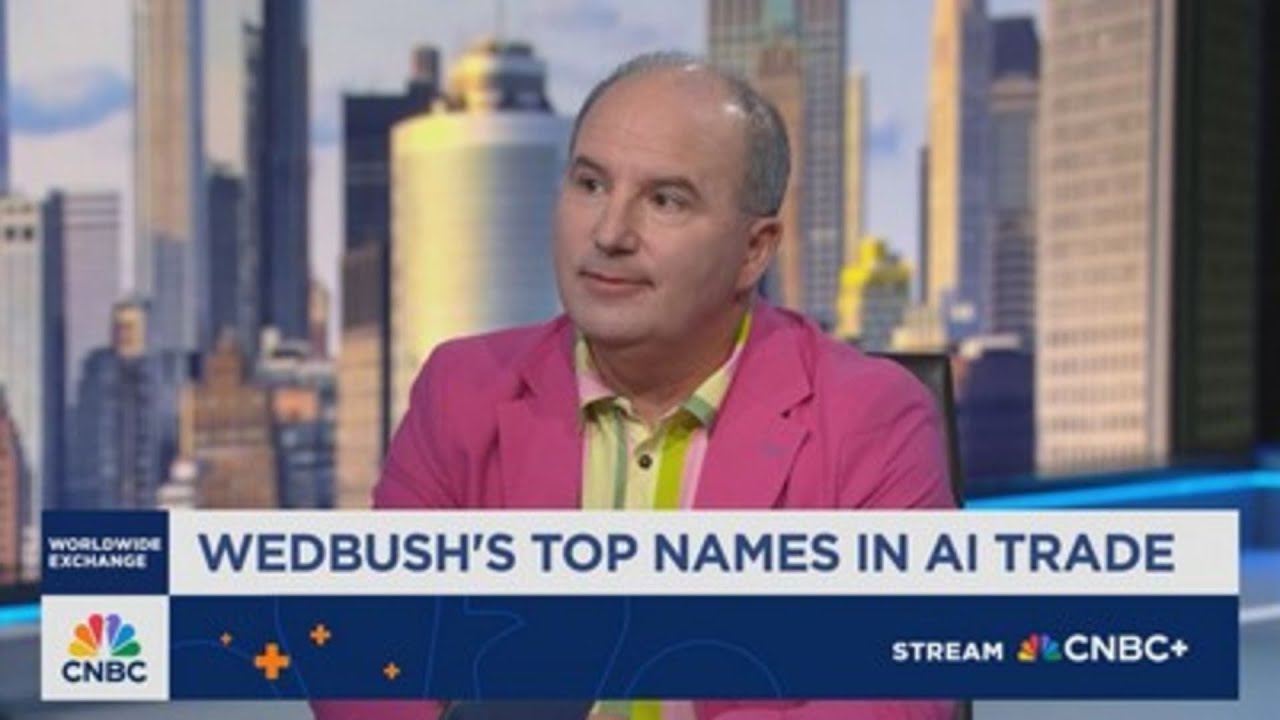Ives discusses the launch of the Ives ETF, which aims to capitalize on the AI-driven fourth industrial revolution by investing in a broad range of companies involved in AI, infrastructure, energy, and cybersecurity. He highlights Tesla’s potential, government modernization efforts, and the growing importance of energy and security sectors, emphasizing a thematic, research-driven investment approach to harness AI’s transformative impact.
The video features a discussion about the launch of the Ives ETF, which is designed to capitalize on the AI theme by focusing on companies involved in the fourth industrial revolution. The ETF is based on extensive research and highlights not just the leading tech giants but also the second, third, and fourth derivatives of AI development. Ives emphasizes that this period marks a golden age for AI, and the ETF aims to provide investors with exposure to this rapidly evolving sector.
Ives discusses Tesla as a top pick within the AI 30 list, highlighting its potential in autonomous driving and robotics. Despite recent tensions between Elon Musk and political figures like Trump, Ives believes these issues do not alter Tesla’s long-term prospects. He argues that Musk’s departure from the White House was beneficial for Tesla’s autonomous vision, which he estimates could add significant value to the company. Ives remains optimistic about Tesla’s future, expecting a potential doubling of its stock price over the next 12 to 18 months driven by advancements in autonomous technology.
The conversation then shifts to other companies in the ETF, particularly those involved in infrastructure and government modernization efforts. Ives sees government spending on software, cybersecurity, and AI as a positive catalyst for growth in these sectors. He mentions major players like Palantir, Microsoft, and Oracle, emphasizing that government investments in digital transformation and AI are substantial and ongoing. Despite some budget cuts, Ives believes these trends will ultimately benefit software and cybersecurity companies, fueling further innovation and revenue opportunities.
The discussion also touches on recent developments in the energy sector, specifically the Constellation Energy and Meta deal, which signals a convergence of big tech and energy industries. Ives views this as part of a broader trend where data centers and AI infrastructure require significantly more power, prompting a focus on energy solutions like nuclear power. He suggests that this is just the beginning of a larger shift, and investors should adopt a thematic approach rather than focusing on a few individual names to capture the full potential of AI-related growth across multiple sectors.
Finally, Ives identifies cybersecurity as a key area within the second derivatives of AI development, emphasizing its importance in protecting increasingly AI-driven workloads. He considers cybersecurity to be a leading area for AI investment, with companies in this space poised to benefit from the growing need for advanced security solutions. Overall, Ives advocates for a broad, research-driven approach to investing in AI, highlighting the importance of understanding the interconnectedness of technology, energy, and security in shaping the future landscape.
